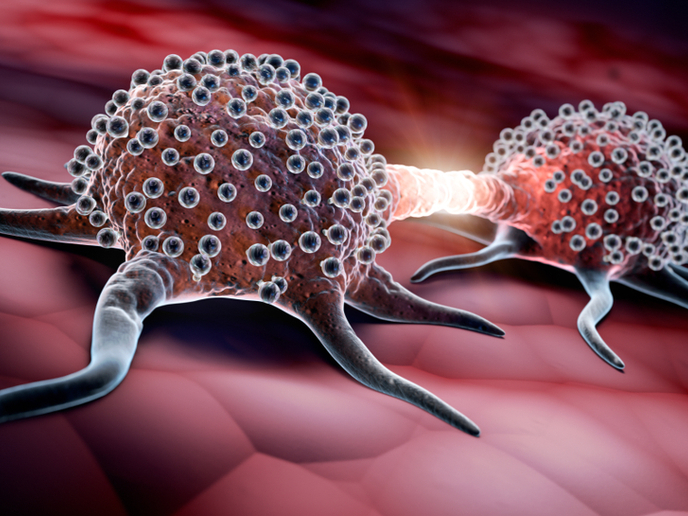New test saves breast cancer patients unnecessary chemotherapy and healthcare costs
Breast cancer is the most frequently diagnosed cancer in women, accounting for a quarter of all female cancers. Almost half of women newly diagnosed with breast cancer commonly present with early stage, hormone receptor positive (ER and/or PR+), lymph node negative (LN-) cancer and the usual treatment is to remove the tumour. This surgical intervention is frequently followed by chemotherapy, which is often a harrowing process. For 70 % of these women chemotherapy is unnecessary, as the cancer will not recur. The OncoMasTR project has developed a way of identifying which women actually need the treatment, potentially saving thousands of patients from unnecessary rounds of chemotherapy while also saving healthcare systems the expense of providing the therapy to those who don’t need it. “There are a number of multi-gene prognostic assays on the market, including Oncotype DX (Genomic Health), EndoPredict (Myriad) and MammaPrint (Agendia). However, none of the current solutions on the market completely address the needs of the medical community or those of breast cancer patients,” explains CEO Mr. Des O’Leary. The team identified a need for a reliable, more accurate prognostic test for early-stage breast cancer patients. “Our solution is OncoMasTR, a prognostic assay for early stage breast cancer that accurately stratifies patients into high risk and low risk (i.e. will not benefit from chemotherapy) of recurrence.” A unique and innovative approach to the discovery of biomarkers OncoMark identified a panel of 10 biomarkers that predict the recurrence of early stage breast cancer, using a bioinformatical approach called ARACNe. “Under the SME Instrument grant, we developed the OncoMasTR test from the panel of biomarkers we had previously identified. We developed a qRT-PCR assay, measuring the expression levels of the OncoMasTR biomarkers, that we demonstrated to be analytically robust and suitable for deployment in routine clinical laboratories,” says Dr. Angel Wang, Product Development Manager. They have validated their test in two large cohorts, demonstrating that the OncoMasTR test accurately stratifies early-stage breast cancer patients into low and high risk of recurrence. Next stages The project has achieved what it set out to do, “OncoMasTR test will help the clinician to determine a course of treatment for their patients, avoid unnecessary chemotherapy for the patient and reduce healthcare costs,” Mr. O’Leary explains. OncoMark will CE-mark (self-declaration) the OncoMasTR test in June 2018, allowing the OncoMasTR test to be marketed within the EU for routine use in clinical laboratories. As the OncoMasTR test contains the smallest signature on the market, 3 genes, the price will be competitive. Mr. O’Leary is delighted at the project’s outcome, “Lowering the number of patients receiving cancer-related treatments will reduce the requirements for healthcare services and reduce economic hardship for patients who routinely lose working days due to chemotherapy-induced side effects.”
Keywords
OncoMasTR, cancer, breast cancer, prognostic assay, chemotherapy, screening, unnecessary chemotherapy







